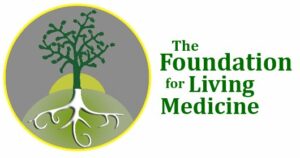
Although meditation has been around for eons, the area of “Mindfulness Meditation” seems to have become particularly popular over the past few decades. I remember in the 1980s and 1990s trying to make my brain focus on a void, nothingness, wiping away any thoughts or feelings that may come up during meditation. But, Mindfulness meditation helps one become non-judgmentally aware of our moment-to-moment thoughts, feelings, bodily sensations, and environment. According to a blog post in Psychology Today, Mindfulness meditation “teaches us how to be unconditionally present; that is, it helps us be present with whatever is happening, no matter what it is.”
Mindfulness Meditation has roots from Buddhist meditation practices, particularly stemming from an old practice called Vipassana or Insight Meditation that focuses on “developing the skill of paying attention to our inner and outer experiences with acceptance, patience, and compassion.” The work of Jon Kabat-Zinn and his Mindfulness Based Stress Reduction program (MBSR) (University of Massachusetts Medical School, 1979) is also considered to be a major influence on the evolution of Mindfulness Meditation.
Yi-Yuan Tang, presidential endowed chair in neuroscience and professor in the Department of Psychological Sciences at Texas Tech University, has created a popular new mindfulness technique called the Integrative Mind-Body Training technique (IMBT). His IMBT technique involves helping individuals reach a restful alertness, while their coach works with them by adjusting their posture and providing mental imagery that helps them reach body-mind harmony and balance. This technique significantly improves creativity, immune function, emotional control, attention, plus many more benefits, including reducing stress. Learn more about it HERE.
Today, neuroscientists are proving the value of mindfulness meditation, as well as other integrative body-mind exercises, such as Pilates, yoga, tai chi, and even dancing. According to an article in Science Daily, they have found that there are neural networks that connect the cerebral cortex to the adrenal medulla that activates the body to react in stressful situations. These findings are uncovering how mental states, such as depression and stress, can affect organs… and, further, the fact that psychosomatic illnesses may be real. They are learning WHY integrative exercises and meditation practices help the body deal with stressful situations… and the fact that these techniques actually DO help individuals improve their health. Learn more HERE.
But, we individuals who have been practicing many of these techniques for a long time, could have told them. Right???
